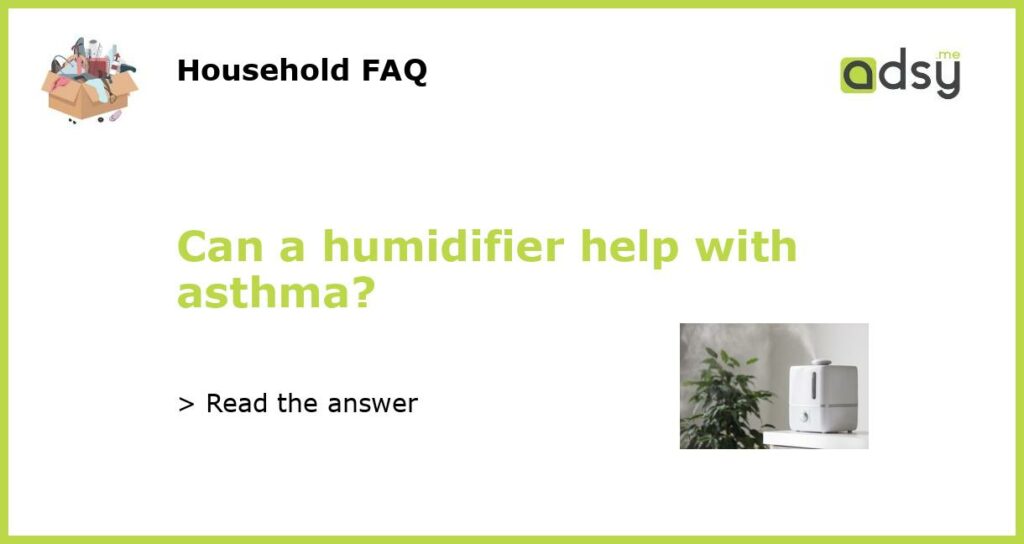Understanding Asthma and Its Triggers
Asthma is a chronic respiratory condition that affects millions of individuals worldwide. It is characterized by inflammation and narrowing of the airways, which makes breathing difficult. Asthma symptoms can be triggered by various factors such as pollen, dust mites, pet dander, and air pollutants. Exposure to these triggers can cause wheezing, coughing, shortness of breath, and chest tightness.
Humidifiers and Asthma: The Connection
Humidifiers are devices that add moisture to the air, making it more comfortable to breathe, especially if the air is dry. Many people with asthma believe that using a humidifier can help reduce their symptoms, but is it true?
According to the American Lung Association, there is no conclusive evidence suggesting that using a humidifier can relieve asthma symptoms. In fact, high levels of humidity can worsen asthma symptoms by promoting the growth of mold, dust mites, and other allergens that trigger asthma.
The Risks of Using a Humidifier with Asthma
If you have asthma, you should be wary of using a humidifier. High humidity levels can exacerbate respiratory symptoms, especially if you are sensitive to allergens such as dust mites, mold, and pet dander. For people with asthma, exposure to these allergens can worsen their condition, leading to wheezing, coughing, and shortness of breath.
Additionally, using a humidifier that is not cleaned or maintained properly can cause the growth of bacteria and fungi, which can trigger asthma symptoms. The Centers for Disease Control and Prevention recommend cleaning and disinfecting your humidifier regularly, using only distilled water, and keeping the humidity levels below 50% to prevent the growth of allergens and microorganisms.
Alternative Ways to Manage Asthma Symptoms
While using a humidifier may not be the best solution for people with asthma, there are several other ways to manage asthma symptoms and reduce the risk of trigger exposure. Here are some examples:
- Avoid exposure to allergens such as dust mites, pollen, and pet dander
- Use air filters to remove allergens from the air
- Keep your home clean and dust-free
- Avoid smoking and exposure to secondhand smoke
- Take your asthma medications as prescribed by your healthcare provider






